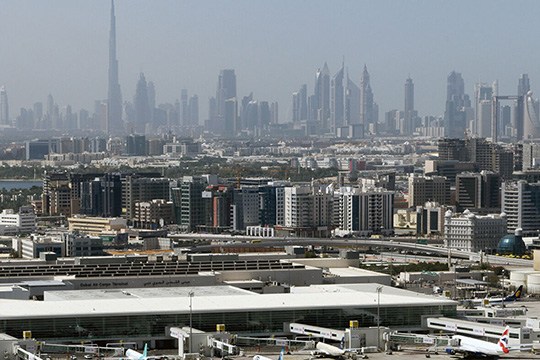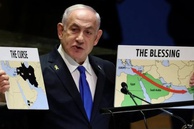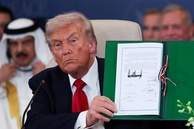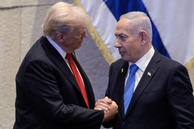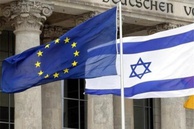Event
On August 13, media in the Middle East and the entire world were shocked by the news about Israel and the United Arab Emirates (UAE) having agreed to normalize bilateral relations, and Abu Dhabi officially recognizing the Jewish State.
Two weeks later, on August 29, the President of the United Arab Emirates, Sheikh Khalifa bin Zayed Al Nahyan, signed a federal law that repealed the 1972 Israel Boycott Law.
The new law is part of the UAE's efforts to dial up diplomatic and commercial cooperation with Israel, and sets the stage for starting bilateral cooperation by stimulating economic growth and promoting technological innovation.
With the economic boycott of Israel now gone, UAE entrepreneurs and firms will be able to conduct financial and trade transactions with their Israeli colleagues, while Israel will be free to export to the Emirates any goods allowed to be sold there. [1] Expanding bilateral tourism is also on the cards.
Things are moving pretty fast now.
On August 31, an Israeli El Al Boeing 737 with the word "Peace" painted on its body in Hebrew, Arabic and English made history flying to the Emirates via the territory of Saudi Arabia, bringing to Abu Dhabi two delegations – one, led by Israel’s national security advisor, Meir Ben Shabbat, and a US one, headed by President Trump’s National Security Advisor Robert O'Brien, [2], as well as dozens of heads of Israeli ministries and public and private company CEOs. It was the first ever direct commercial flight from Israel to the UAE.
The delegations of the three countries held talks with a view to establishing diplomatic relations between Israel and the Emirates and setting in motion the process of economic cooperation between them. Representatives of the two countries are scheduled to ink an agreement on the full normalization of bilateral relations at a White House meeting in Washington on September 18.
The uniqueness of this event should be viewed from a historical standpoint.
History
The history of relations between Israel and its Arab neighbors is one of wars, including propaganda, terrorist acts, special operations, and diplomatic battles.
On May 14, 1948 in Tel Aviv, the famous Jewish politician and Israel’s first Prime Minister David Ben-Gurion, acting in pursuance of the UN General Assembly Resolution 181 of November 29, 1947 [3], proclaimed Israel's Declaration of Independence. The UN resolution, adopted with Soviet and US support, ended the British mandate in Palestine and envisaged the creation on its territory of two states: Jewish and Arab. Of the 57 UN member-countries in 1947, 13, most of them Muslim, including all Arab members of the UN (Egypt, Iraq, Yemen, Lebanon, Saudi Arabia and Syria) voted against the resolution. [4]
Arab leaders, the Arab League and the Arab Supreme Council categorically rejected the UN-proposed partitioning of Palestine and vowed every effort to prevent it happening. On November 24, 1947, Jamal al-Husseini, acting chairman of the Supreme Arbitration Court, warned that Palestine would be engulfed in fire and blood if the Jews got any part of it. The Secretary-General of the Arab League, Azzam Pasha, added: “This will be a war of extermination and a momentous massacre which will be spoken of like the Mongolian massacres and the Crusades.” [5]
The dark warnings by the two Arab leaders quickly became prophetic. On May 15, 1947, just a day after the State of Israel was born, the forces of Syria, Egypt, Transjordan, Lebanon, Iraq, Saudi Arabia and the Palestinian army attacked the Jewish State, starting an era of tough Arab-Israeli confrontation, most often a military one. [6] Although outnumbered by its enemies, Israel still emerged victorious from most of these wars due to its high morale, excellent combat training and the ability to effectively use modern high-tech military equipment.
After the Six-Day War of 1967 when Israel seized territories several times its own (for which it was condemned by most of the world powers), it offered to give them all back in exchange for a peace treaty. However, the Arabs refused to admit defeat. During their September 1967 summit in Khartoum, Sudan, the leaders of eight Arab states (Algeria, Egypt, Jordan, Iraq, Kuwait, Lebanon, Syria and Sudan) adopted the Khartoum resolution, which called for the continuation of the state of war with Israel and proclaiming the principle of three "no"s: no peace with Israel, no recognition of Israel and no negotiations with Israel. Ever.
The declaration served as the basis for a long and irresoluble struggle between the Arabs and Israel. Times were a-changing though, and while Israel held on to the occupied territories, it was still demonstrating its vitality, scientific and technological advancement and prosperity. Israel’s Arab neighbors could no longer afford to ignore this and, as they say, the process began…
In 1979, Egypt signed a peace treaty with Israel, thus getting back the Sinai Peninsula, previously occupied by the Israelis, now with developed infrastructure, plus regular military and financial assistance from the United States, as well as border security.
In 1994, Jordan made peace with Israel and established diplomatic relations with it, receiving security guarantees from Tel Aviv, along with supplies of natural gas and drinking water.
It was perfectly clear that the end of the principle of three “no”s was now near as political reality, embodied in Israel's strength, stability and diplomatic activity, was changing many Arab countries’ attitude towards the Jewish State. Most of them, who had changed the duration of the "three no"s from "eternity" to "a solution to the Palestinian problem," already realized that this deadline was unrealistic. No solution to this difficult problem is sight, and the pace of political and economic life keeps picking up. In the Middle East, the influence of the former hegemon, the United States, is decreasing, new regional forces of political and military attraction are emerging and public and private ties are being created all across the board.
Ties between Israel and the Gulf monarchies have quietly been developing since the mid-1990s, when there was progress in Palestinian-Israeli relations (the Oslo agreement signed by Israel and the Palestine Liberation Organization). Notably, the Gulf countries have never fought with Israel (with the exception of Saudi Arabia during the first war of 1948). They have always supported the Palestinians, although mainly financially and politically, and currently are not in any tangible way connected with the Palestinian problem (except Kuwait).
During the past decades, stealthy ties between Israel and Persian Gulf monarchies have received a new boost in the form of the so-called “Iranian threat,” which not only drew them closer together, but also encouraged a rapprochement with Iran’s archenemy - Israel.
Iran is not the only reason for these emerging ties between Israel and the richest countries of the region. The Middle Eastern monarchies take a great deal of interest in Israeli high technologies in medicine, agriculture, irrigation, water supply, the fight against desertification, in the nuclear and military-technical fields, as they are trying to diversify their economies.
The issue of establishing diplomatic relations between Abu Dhabi and Jerusalem was possibly discussed in the framework of the Cooperation Council for the Arab States of the Persian Gulf (GCC), originally known as the Gulf Cooperation Council, and the UAE is heralding the advent of the Arab-Israeli spring.
Pros and cons
When briefing reporters on August 13, Israeli Prime Minister Benjamin Netanyahu hailed the agreement on normalizing relations between Israel and the UAE as “a historic breakthrough on the road to true peace in the Middle East,” which “includes full diplomatic relations, the mutual opening of embassies, the exchange of ambassadors, extensive investments, communications, tourism and air links, including direct flights between Tel Aviv and Abu Dhabi. All of this will benefit the Israeli economy. ... The UAE is one of the most powerful and advanced countries in the world."
According to Netanyahu, “Israel is a leading state of innovations, a growing world power, like the UAE. We cultivate progress, and they cultivate progress. We cultivate knowledge and entrepreneurship, and so do they, we have become a prosperous country. We have seen the spaceships they launched into space. Together we can ensure a wonderful future for our peoples, our countries and our regions.” [7]
In a statement made on that same day, Emirati Foreign Minister Anwar Mohammed Gargash said that normalization of relations with Israel would allow the UAE to play a direct role in ensuring stability and security of the Middle East. He emphasized that the Emirates had received Israel's consent to renounce the annexation of the Palestinian territories in order to facilitate the creation of two independent states, lauding it as a "significant diplomatic achievement for the UAE."
Anwar Gargash described as “encouraging” some of the world’s leading countries’ positive reaction to the accord on the normalization of relations between the UAE and Israel. [8] UN Secretary General Antonio Guterres, for his part, welcomed the conclusion of a peace agreement between the Emirates and Israel.
Russia has spoken in support of the UAE-Israel agreement. During a telephone linkup, President Vladimir Putin and Benjamin Netanyahu exchanged their views on the Middle East settlement in the context of the recent agreement between Israel and the United Arab Emirates on the complete normalization of bilateral relations. Moscow underscores its unwavering support for a just, comprehensive and sustainable solution to the Palestinian problem and hopes that the agreement between Israel and the UAE will contribute to strengthening stability and security in the region. [9]
The European Union, likewise, endorsed the peace deal, with its foreign affairs commissioner Josep Borrell issuing a declaration welcoming the normalization of ties between Israel and the United Arab Emirates and recognizing the constructive role played by the United States. It also mentioned the EU’s longtime effort to improve relations between Israel and the countries of the region. The statement describes Israel and the UAE as important partners of the European Union, and Israel's commitment to suspend plans to unilaterally annex parts of the occupied Palestinian lands as a positive step. [10]
The United Kingdom, Egypt, Oman, Bahrain, Sudan (recall the 1967 Khartoum resolution) and Mauritania also voiced their support for the agreement between the UAE and Israel.
Jordan's attitude to the agreement was ambiguous: on the one hand, it endorsed it, but with the reservation that Israel must build new relations with the Palestinian Authority.
Malaysia said that although it recognizes the Emirates’ sovereign right to sign the deal, Kuala Lumpur would still insist on Israel's withdrawal from the Palestinian territories.
The Kingdom of Saudi Arabia (KSA) has not made any official statements about the deal, neither supporting nor condemning it. Political analysts explain the Saudis’ hesitance in part by different views that King Salman bin Abdel Aziz Al Saud and Crown Prince Mohammed bin Salman have about Israel: the monarch is less inclined to support the normalization process, while his heir is ready to go to great lengths to mend fences with Israel. Simultaneously, the Saudis are looking for an opportunity to expand their already long-running and multilateral informal cooperation with Israel, including attracting investment into the country's economy, which is going through serious changes. Here the Emirates’ role becomes decisive.
So far, many countries have not yet expressed their official position on the Israeli-Emirati peace deal.
The Palestinian Authority is naturally the most vocal opponent of the trilateral agreement between Israel, the UAE and the United States.
“The Palestinian leadership views this step as an attempt to undermine the Arab peace initiative and the Arab League's decisions. This step is also a betrayal of the [Islamic shrine] of Al-Aqsa, Jerusalem and the Palestinian cause, aggression against the Palestinian people,” the Palestinian President's spokesman said in a statement. [11]
Palestinian Foreign Minister Riyad al-Maliki recalled the Palestinian ambassador from the United Arab Emirates in response to the normalization of relations between the UAE and Israel. [12]
Palestinian paramilitaries Hamas and Islamic Jihad also oppose the UAE-Israel agreement, which they describe as “a stab in the back of the Palestinian cause and surrender.” [13]
Of the non-Arab countries of the region, Turkey and Iran have reacted most harshly to the UAE-Israel agreement.
Turkish President Recep Tayyip Erdogan said he was ready to break off diplomatic relations with the UAE because of the latter's ties with Israel. According to Erdogan, Abu Dhabi has betrayed the Palestinians. He even threatened the Emirates with economic sanctions for ties with official Jerusalem, which, by the way, has its own embassy in Ankara, "although without the ambassador present there." Turkey’s position on this issue looks pretty ambivalent as Ankara pursues its own interests here. [14] Indeed, Turkey is at military-political and diplomatic loggerheads with the UAE in the armed conflicts in Libya and Yemen, and this is apparently the main reason for President Erdogan’s angry reaction. And, of course, his desire for Islamic leadership in the Middle East.
When it comes to Iran, the situation is even more complicated. Iranian propaganda slammed the UAE-Israel accord with President Hassan Rouhani saying that “unfortunately, the UAE has made a big mistake and we hope it will return from this wrong path. We warn them not to want to invite Israel to the region, in which case they will be treated differently.” [15]
Shortly afterwards, the Iranian ambassador was summoned to the UAE Foreign Ministry where he was presented with an official protest over President Rouhani’s statement and reminded of the impermissibility of such statements.
“Such statements are unacceptable. They are inflammatory and seriously undermine the stability and security of the region,” the note said. [16]
A little later, on September 1, ignoring the Emiratis’ reaction, the supreme leader of Iran, Ayatollah Khamenei, said that the UAE had betrayed the Islamic world and the Palestinians by concluding an agreement to normalize relations with Israel.
“The UAE’s betrayal will not last long, but this stigma will always be remembered. They allowed the Zionist regime to enter the region [Persian Gulf] and forgot Palestine,” Khamenei said in televised remarks.
Iran’s military chief of staff, General Mohammad Bagheri, said earlier that Tehran will hold Abu Dhabi responsible for actions that undermine the security of the Persian Gulf. Iran's Islamic Revolutionary Guard Corps (IRGC) has warned the UAE of its "dangerous future" following a deal with the "Zionist regime" in what looks like a threat.
The Islamic Republic of Iran is neither an Arab nor Sunni country, and is located relatively far from both Israel and Palestine. Why is it ramping up tensions with Israel then? What is behind its support for all Palestinian factions and the Palestinians in general?
The reason for this is both political and ideological. Long before the creation of the Islamic Republic of Iran, the leader of the Islamic revolution, Ayatollah Khomeini, outlined in his essay “Velayat e Faqih” [18] the fundamental principles of his ideology, which later became known as “Khomeinism” or “neo-Shiism”. This ideology, inextricably linked with politics, looks to create a global Islamic Ummah (community) led by Iran.
Developing his teaching in the 1960s and 70s, Ayatollah Khomeini was well aware that for Shiite Iran to achieve the main goal of unifying the Islamic world according to the Iranian model and creating a "world Islamic community - ummah" under Tehran’s auspices was a mission impossible. After all, Shiites account for a mere 10-15 percent of all Muslims in the world. Therefore, Khomeini chose Israel as an object, which the overwhelming majority of Muslims regarded as an enemy. Khomeini thus tried to smooth over Shiite-Sunni contradictions, at least in politics, while assigning the eternal disputes of Shiite and Sunni religious leaders exclusively to the realm of theology. Ayatollah Khomeini never tired of emphasizing the absence of any antagonistic contradictions between Shiism and Sunnism under common Islam. [19] Notably, Iranian official documents never use the term "Shiism" or its derivatives, applying the term of “Islam of the Jafarite school” whenever necessary.
Based on this approach, Khomeini argued that Israel, which lies at the heart of the Islamic world, is the main obstacle to the creation of a global Islamic state, and described the strategic task of combating it as "the liberation of Jerusalem." His goal was "to create a free democratic state with the participation of all Palestinians (including the 6 million returned refugees), plus Christians and Jews." The plan actually envisions the disappearance of the State of Israel as a result of its absorption and the relegation of its citizens to the status of a religious minority in the greater Palestine – a truly utopian project that flies in the face of the absolute majority of world nations and UN decisions.
Even before the 1979 Islamic revolution, Khomeini and his associates started calling Israel a "Zionist entity" or "occupied territory." Moreover, they designated as “enemies” the US, Israel, the USSR and ... “wrong Muslim regimes,” namely the Muslim countries, “whose rulers, transferring the experience of the West to Muslim soil, betray Islam, turn into apostates and accomplices of imperialism.” [20]
The world has changed a lot since then, however…
Conclusions
Today the whole world, including the Middle East, is changing fast and the Middle East region is no exception. I believe it would be safe to assume that it will be reformed due to the natural, moreover, very pragmatic laws of geopolitical economics, which is all about “profitable vs. not profitable.”
Israelis are actively engaged in quite dialogues with dozens of countries, which means that other Arab and Muslim countries may follow the example of the UAE and, most likely, may eventually normalize relations with Israel. Analysts believe that Oman, Bahrain and Sudan could be the next to follow in the Emirates’ footsteps. [21]
The road from war to peace is open, life takes its course.
The views of the author are his own and may differ from the position of the Editorial Board.
------------------------------------------------------------------------------
[1] WAM website. 29.08.2020. Khalifa bin Zayed issues a decree to abolish the Israel Boycott Law. https://wam.ae/en/details/1395302865596
[2] In the process of normalization of Israel-UAE relations, the United States acts as a mediator of dialogue and initiator of decisions by the two countries’ leaderships. The role and the political interests of Washington are a separate matter though. It includes the electoral policies of President Trump and his administration, encompassing American, primarily Jewish, as well as international audiences.
[3] UN website. https://undocs.org/ru/A/RES/181%28II%29
[4] A Day in History website. https://denvistorii.ru/29-noyabrya/generalnaia-assambleia-oon-priniala-plan.html
[5] Alla Saltykova. “Palestine will be engulfed by fire and blood.” Gazeta.Ru website. 15.05.2018. https://www.gazeta.ru/science/2018/05/15_a_11751337.shtml
[6] Arab-Israeli conflicts: war for independence (1948 – 1949); second Arab-Israeli war (1956) – “Suez campaign”; third Arab Israeli war (June 1967) – “Six-Day War”; fourth war (1969-1971) – “War of Attrition”; fifth war (October 1973) – “Yom Kippur War”; sixth (Lebanese) war (1982) codenamed “Peace for Galilee”; first Palestinian Intifada (1987-1993); second Lebanese war (“July War” in the Arab world”) 2006; Israel’s Operation Cast Lead in Gaza (2008-2009); Gaza Strip border operation (2007-2019). See Isralove website for details. https://isralove.org/load/30-1-0-2486
[7] Calcalist website (Israel). 13.08.2020. Netanyahu: “We have decided to establish official and complete peace with the UAE.” https://www.calcalist.co.il/local/articles/0,7340,L-3844895,00.html
[8] RIA Novosti website. 13.08.2020. UAE comments on normalization of relations with Israel. https://ria.ru/20200813/1575757107.html
[9] Official online resources of the President of the Russian Federation. 24.08.2020. Telephone conversation with Israeli Prime Minister Benjamin Netanyahu. http://kremlin.ru/events/president/news/63937
[10] European Council/Council of the European Union website. 15.08.2020. Declaration by the High Representative on behalf of European Union on the announcement of a normalization of relations between Israel and the UAE. https://www.consilium.europa.eu/en/press/press-releases/2020/08/15/declaration-by-the-high-representative-on-behalf-of-european-union-on-the-announcement-of-a-normalisation-of-relations-between-israel-and-the-uae/
[11] TASS website. 13.08.2020. https://tass.ru/mezhdunarodnaya-panorama/9196097
[12] Rossiiskaya Gazeta website. 14.08.2020. https://rg.ru/2020/08/14/palestina-otozvala-svoego-posla-iz-oae.html
[13] Igor Subbotin. “The Israeli-UAE deal has given free rein to the Palestinians.” Nezavisimaya Gazeta website. 16.08.2020. https://www.ng.ru/world/2020-08-16/2_7938_israel.html
[14] Mirovoye Obozreniye website. 01.09.2020. Turkey ready to sever diplomatic ties with UAE over their ties with Israel. https://tehnowar.ru/166705-Turciya-gotova-razorvaty-diplomaticheskie-otnosheniya-s-OAE-iz-za-svyazey-poslednih-s-Izrailem.html
[15] Iranian President’s website. 15.08.2020. http://www.president.ir/en/116806
[16] Gennady Petrov. “The Israel-UAE agreement has divided the Muslim world.” Nezavisimaya Gazeta website. 17.08.2020. https://nvo.ng.ru/world/2020-08-17/100_israel17082020.html
[17] EaDaily website. 01.09.2020. https://eadaily.com/ru/news/2020/09/01/ayatolla-hamenei-oae-pokryli-sebya-vechnym-pozorom-pustiv-izrail-v-zaliv
[18] The idea of “Velayat e Faqih” is a sacral and political expression of religious spirituality aimed at the absolute governance by a just theologian representing the supreme degree of spiritual, Shiite authority – “Marja-e Taqlid.”
[19] Article 11 of the Iranian Constitution says: “According to the Qur’an: “Verily, this brotherhood of yours is a single brotherhood. And I am your Lord and cherisher: therefore serve me” (21: 92), all Muslims form a single nation and the government of the Islamic Republic of Iran is required to base its overall politics on the merging and unity of the Muslim nations. It must continuously strive to achieve the political, economic, and cultural unity of the Muslim world.” Constitution of the Islamic Republic of Iran. Tehran, 2009.
[20] See V.I. Sazhin, Yu.M. Bondar “The military might of the Islamic Republic of Iran.” M., Moscow University Publishers, 2014. p.512.
[21] Interfax website. Israel is in talks with a number of Arab countries on normalization of relations –Netanyahu. https://interfax.com.ua/news/general/684359.html
read more in our Telegram-channel https://t.me/The_International_Affairs

 11:52 11.09.2020 •
11:52 11.09.2020 •
